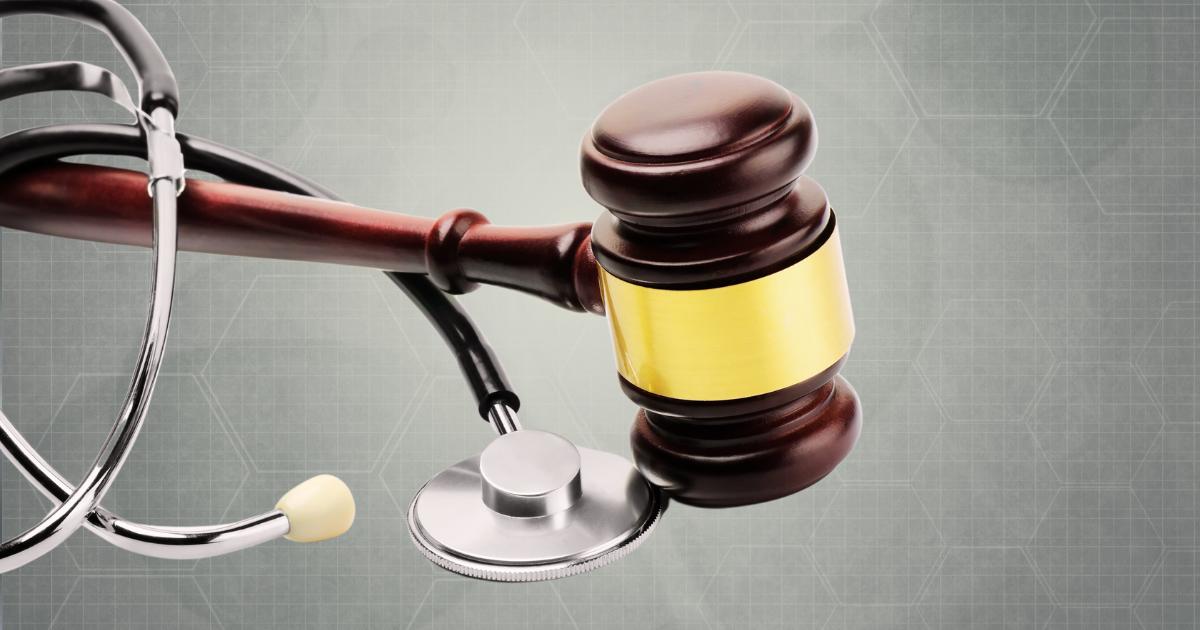Featured Article

Medical malpractice – which includes nursing home abuse and neglect – is a complex area of personal injury law that requires a nuanced understanding of both medical and legal principles. At The Law Office of David M. Kennedy, located in Sherman, Texas, we specialize in helping victims of nursing home abuse and medical malpractice claims in North Texas. If you believe you have been a victim of medical malpractice, understanding how to prove your case is crucial for obtaining the compensation you deserve. This blog will guide you through the essential steps to prove medical malpractice.
Understanding Medical Malpractice
Medical malpractice occurs when a healthcare professional deviates from the standard of care, resulting in harm to the patient. The standard of care refers to the level of care and skill that the average, reasonably competent healthcare professional would provide – or avoid – under similar circumstances. Proving medical malpractice involves demonstrating that the healthcare provider’s negligence directly caused your injury or worsened your condition.
Key Elements to Prove Medical Malpractice
To establish a successful medical malpractice claim, you must prove four key elements:
1. Duty of Care
The first step is to show that a healthcare provider-patient relationship existed, establishing that the healthcare provider owed you a duty of care. This relationship is usually straightforward as it can be demonstrated through medical records. The fight will be over the standard of the care and what should have been done or avoided to meet that standard.
2. Breach of Duty
Once the duty of care is established, you need to prove that the healthcare provider breached this duty by failing to adhere to the standard of care. Examples of a breach can be errors in diagnosis, treatment, monitoring, aftercare, or health management. Expert testimony from other medical professionals is almost always required. They can compare the actions of the defendant to the accepted medical standards and highlight deviations. Generally, the standards are those that exist in the particular field of healthcare, and are sometimes set by legislation as in those cases involving nursing home care.
3. Causation
Proving causation is perhaps the most challenging aspect of a medical malpractice case. You must show that the breach of duty directly caused your injury. It is not enough to demonstrate that the healthcare provider was negligent; you must also connect this negligence to the harm you suffered. Medical records, expert testimony, and sometimes even medical literature can help establish this causal link. Your involvement in this element will be in providing facts, not in proving neglect. Experts will take the facts and apply the standard to them. They will then determine if the standard was breached and whether it actually caused damages significant enough to justify the expense of bringing the lawsuit.
4. Damages
As noted above, you must prove that the breach of duty and subsequent injury resulted in specific damages. These damages can include physical pain, mental anguish, additional medical bills, lost wages, and loss of earning capacity. Detailed documentation of your medical treatments, financial losses, and the impact on your daily life will support your claim for damages, as will the testimony of family and friends that may be able to show how the malpractice has affected your life.
Steps to Take if You Suspect Medical Malpractice
If you suspect that you or a loved one has been a victim of medical malpractice and/or nursing home abuse, it is crucial to act promptly. Here are the steps you should take
1. Keep Medical Records
Keep copies of all relevant medical records, including insurance billing records and those from CMS. These documents will provide a comprehensive view of the treatment you received and could be proof of deviations from standard practices. But, do not ask for your records from your healthcare provider, as your attorney will do that formally or advise you on how best to obtain the records.
2. Seek a Second Opinion
A second opinion from another healthcare professional can provide an objective assessment of your condition and treatment. This opinion can be vital in identifying potential breaches of the standard of care. But, do not tell that subsequent treating provider that you are considering a lawsuit or making a claim against your previous healthcare provider, as that may scare off this new provider. Nevertheless, your continued treatment and recovery are paramount and should always be your main priority, so seek additional treatment if you believe it necessary for your well-being.
3. Document Everything
Keep detailed records of all interactions with healthcare providers, treatments received, and any changes in your condition. This documentation is invaluable in advising your attorney of a timeline and from whom the records will need to be obtained.
4. Consult a Medical Malpractice Attorney
Medical malpractice cases are highly specialized, difficult, very expensive, and require expert legal representation. At The Law Office of David M. Kennedy, we have the experience and knowledge to navigate these complex cases. We can help gather evidence, consult with medical experts, and build a compelling case on your behalf.
The Role of Expert Witnesses
Expert witnesses play a crucial role in medical malpractice cases. Less than one percent of all healthcare claims are resolved without expert testimony. Experts can help establish the standard of care, demonstrate how the defendant deviated from this standard, and show how this deviation caused your injury. Our firm collaborates with a network of respected medical experts who can provide the necessary testimony to support your claim if in fact there was malpractice and significant injury. We do not, however, have experts ready to testify, and we will only rely on experts who can prove to the firm that malpractice was committed and why the lawsuit is justified.
Statute of Limitations in Texas
In Texas, medical malpractice claims are subject to a statute of limitations. Generally, you have two years from the date of the negligent act or omission to file a lawsuit. Exceptions to the two-year limitations are restricted. It is essential to consult with an attorney as soon as possible to ensure that you do not miss any critical deadlines. Additionally, because of the hurdles that must be cleared in addition to the timely filing of the lawsuit, do not wait until the last minute to contact an attorney as your potential case will often be turned away simply due to a lack of time to investigate.
Conclusion
Proving medical malpractice is a complex and demanding process, but with the right legal representation, it is possible to obtain justice and compensation for your injuries. The Law Office of David M. Kennedy is dedicated to helping victims of medical malpractice, nursing home abuse, and neglect in North Texas. If you believe you have a case, contact us today for a free consultation. We are here to guide you through every step of the legal process and fight for the compensation you deserve.
For more information or to schedule a consultation, please visit our Contact Form or Call Us. Let us help you navigate the complexities of medical malpractice and secure the justice you deserve!
Our Promise

Keep Reading
Dealing with Insurance Companies: Best Practices for Communicating with Insurance Adjusters
Navigating the aftermath of a car accident can be overwhelming, especially when dealing with insurance companies and their adjusters. Insurance companies prioritize their profits, which can usually mean…
Traumatic Brain Injuries (TBI): How Car Accidents Lead to TBIs and Their Lasting Impacts
Car accidents are one of the leading causes of traumatic brain injuries (TBIs) in the United States. For victims and their families, the physical, emotional, and financial repercussions…
Soft Tissue Injuries: Understanding Sprains, Strains, and How to Claim Compensation
Soft tissue injuries are among the most common injuries sustained in car accidents, yet their severity is often underestimated. These injuries can cause significant pain, limit mobility, and…



